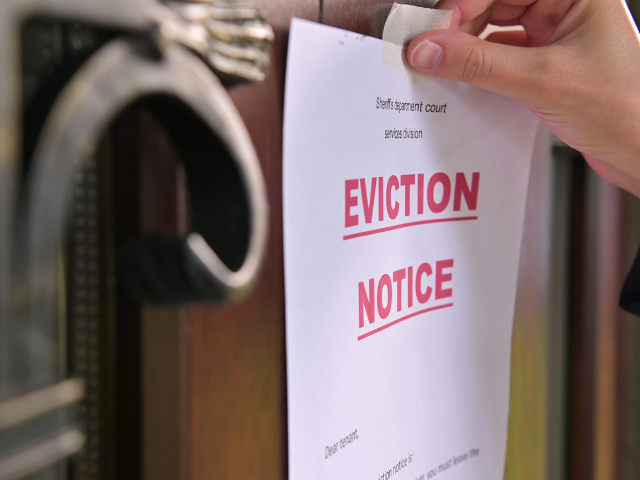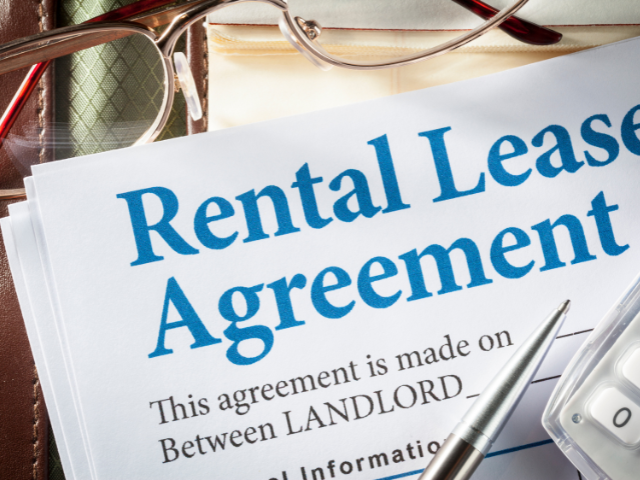
Colorado Law
In a significant move to safeguard tenants receiving public assistance, Colorado has introduced House Bill 23-1120. This new legislation aims to address the imbalance in eviction proceedings and provide stronger protections for vulnerable tenants. Here’s a breakdown of what this means for Colorado residents:
1. Bridging the Legal Representation Gap
The bill recognizes a stark difference in legal representation between landlords and tenants during evictions. Historically, landlords are more likely to have legal counsel, leaving tenants at a disadvantage. The new law seeks to level the playing field, particularly for those receiving public assistance such as Supplemental Security Income or Social Security Disability Insurance.
2. Mandatory Mediation: A Key Feature
A standout feature of the bill is the introduction of mandatory mediation. Before landlords can proceed with evictions, they must engage in a mediation process with tenants receiving public assistance. This step is crucial in providing a neutral platform for both parties to discuss and potentially resolve disputes without resorting to eviction.
3. Extended Time for Writ of Restitution
The law extends the time before a writ of restitution (an order to vacate) can be executed. This change gives additional time for tenants with disabilities or those on fixed incomes to find new housing, reducing the risk of homelessness.
4. Reporting and Transparency
Starting in 2024, the Judicial Department will report annually on the mediation process. This includes the number of mediations, their outcomes, and costs. This transparency is key in evaluating the effectiveness of the new measures.
5. Fair Housing Practices
Landlords can inquire if a tenant receives public assistance to comply with the new eviction process. However, this cannot be used as a basis for discrimination, ensuring fair housing practices.
6. Rental Agreement Changes
Rental agreements must now include clauses that reflect these new protections. Notably, agreements cannot include waivers for mandatory mediation or clauses that allow landlords to charge tenants for mediation costs.
7. Funding and Urgency
The bill includes funding provisions for the judicial department to implement these changes and emphasizes the urgency of these protections for public safety and welfare.
In summary, House Bill 23-1120 is a progressive step towards protecting Colorado’s most vulnerable tenants. By ensuring fairer eviction processes and providing additional safeguards, the bill aims to reduce homelessness and promote equitable housing practices across the state.

Colorado Law
Navigating the New Landscape of Renting in Colorado
Are you looking to rent a home in Colorado? There’s a new law in town that you should know about! House Bill 23-1099, recently passed in Colorado, is changing the game for tenants and landlords alike. Here’s a breakdown of what this means for you as a prospective tenant.
What’s New?
- Portable Tenant Screening Reports: Think of this as your rental resume. This report includes your basic information, employment, income, past addresses, rental history, and even a criminal record check. The best part? You can use this report for multiple rental applications without having to pay multiple fees.
- No More Unfair Application Fees: Landlords can no longer charge you an application fee if you provide your own tenant screening report. This means you can save money while applying for different rental properties.
- Landlords Must Accept Your Report: As long as your report is recent (within the last 30 days) and comes from a recognized agency, landlords are required to accept it. They can’t charge you extra for using your report either.
- Know Your Rights: Landlords must inform you about your right to use a portable tenant screening report. This information should be clear in their advertisements, on their websites, and in the rental application itself.
- Penalties for Non-Compliance: If a landlord doesn’t follow these rules, they could be liable to pay you $2,500, plus any legal costs. However, if they correct their mistake within a week of notice, the penalty is reduced.
What Does This Mean for You?
This law empowers you as a tenant. It makes the rental process more transparent and less costly. You can now shop around for the perfect home without the burden of multiple application fees. Plus, you’re protected against unfair practices by landlords.
In Summary
House Bill 23-1099 is a big win for tenants in Colorado. It simplifies the rental process, saves you money, and gives you more control. As you embark on your journey to find the perfect rental home, keep this new law in mind. It’s designed to make your rental experience fairer and more enjoyable.
Happy house hunting in Colorado! 🏠🌄

Colorado Law
As a property manager, it’s my responsibility to ensure that both tenants and landlords are well-informed about the laws governing rental agreements. With the introduction of Colorado’s House Bill 23-1095, there are significant changes that prospective tenants should be aware of. This article aims to educate you on these changes, ensuring a transparent and fair rental experience.
Understanding House Bill 23-1095:
House Bill 23-1095, enacted by the Colorado General Assembly, is a landmark piece of legislation that revises the state’s rental agreement laws. The bill primarily focuses on prohibiting certain clauses in written rental agreements to protect tenants from unfair practices.
Key Provisions of the Bill:
- Prohibited Clauses in Rental Agreements:
- Unreasonable Penalties: Clauses that impose excessive penalties for eviction notices or actions due to rental agreement violations are now prohibited.
- One-Way Fee-Shifting: The bill eliminates clauses that award attorney fees and court costs only to one party, ensuring fairness in legal disputes.
- Waivers: Tenants are now protected against waivers of certain rights, including jury trials and the ability to participate in class actions.
- Nonrenewal Notice Penalties: Penalties for failing to provide notice of nonrenewal are limited, protecting tenants from excessive charges.
- Redefining ‘Rent’: The bill clarifies that ‘rent’ refers only to the monthly payment for occupancy, excluding other fees and charges.
- Exceptions and Applicability:
- The bill does not apply to mobile homes in mobile home parks in certain aspects.
- It respects rights and remedies available under other laws, including the “Mobile Home Park Act”.
- Definitions and Scope:
- The bill provides clear definitions for terms like “accessory dwelling unit”, “dwelling unit”, “rent”, and “rental agreement”.
- Effective Date and Applicability:
- The act takes effect after a 90-day period post-adjournment of the general assembly, subject to a referendum petition.
- It applies to rental agreements executed after its effective date.
What This Means for You as a Tenant:
As a prospective tenant, these changes are designed to protect your interests. Here’s what you need to know:
- Fair Treatment: The bill ensures that you are treated fairly in terms of fees and legal disputes.
- Clarity in Agreements: You can expect more transparency in your rental agreement, with a clear distinction between rent and other fees.
- Protection of Rights: Your legal rights, such as participating in class actions and enjoying peaceful occupancy, are safeguarded.
Our Role as Property Managers:
As property managers, we are committed to complying with these new regulations and ensuring that our rental agreements are fair and transparent. We encourage you to review your rental agreement carefully and reach out to us with any questions or concerns.
Conclusion:
House Bill 23-1095 represents a significant step towards more equitable rental agreements in Colorado. As a prospective tenant, understanding these changes will empower you to make informed decisions and ensure your rights are protected in your new home. We, as property managers, are here to guide you through this new rental landscape and ensure a positive renting experience.

Colorado Law
Understanding Pet Ownership Laws in Colorado: A Look at House Bill 23-1068
In Colorado, a piece of legislation known as House Bill 23-1068 has been introduced. This legislation revolves around the rights of tenants in relation to pet ownership within rental properties. The bill seeks to provide a comprehensive framework for pet ownership laws within the rental housing sector in Colorado.
House Bill 23-1068 is comprehensive in its approach, detailing the rights of tenants who desire to have pets in their rented accommodations. The intent behind the legislation is to provide a clear set of guidelines that address potential issues that might arise between landlords and tenants due to pets.
As the number of pet owners continues to grow, there is a need for clear regulations that define the responsibilities and rights of both tenants and landlords in rental situations. Pets, for many individuals and families, are considered integral members of the household. Thus, the objective of House Bill 23-1068 is to facilitate a harmonious living environment where tenants can live with their pets without facing undue restrictions or prohibitive fees.
While the legislation sets forth certain guidelines, it also emphasizes the importance of mutual respect and understanding between landlords and tenants. The bill aims to strike a balance, ensuring that while tenants have the freedom to have pets, landlords also have the right to ensure that their property is maintained and that other tenants’ rights are not infringed upon.
To achieve this balance, House Bill 23-1068 outlines certain parameters. For instance, it touches upon the topic of pet fees, aiming to ensure that any fees imposed are reasonable and reflective of the actual costs incurred by landlords. It also provides guidance on the type of rules and regulations landlords can impose concerning pets, ensuring they are not overly restrictive.
It is essential for tenants to be aware of their rights and responsibilities as outlined in the bill. By understanding the legislation, tenants can ensure they comply with the rules and, at the same time, advocate for their rights if they feel they are being treated unfairly. Knowledge of the legislation also empowers tenants to engage in constructive dialogue with their landlords, fostering a positive landlord-tenant relationship.
Similarly, landlords can benefit from a thorough understanding of House Bill 23-1068. By aligning their pet policies with the guidelines provided in the bill, landlords can ensure they are on solid legal footing. Furthermore, by adopting fair and reasonable pet policies, landlords can attract a broader range of potential tenants, including responsible pet owners who are often long-term renters.
The broader societal implications of this legislation cannot be understated. By providing a framework for pet ownership in rental properties, House Bill 23-1068 reflects Colorado’s commitment to fostering inclusive communities. It recognizes the value and importance of pets in many people’s lives and seeks to ensure that individuals are not forced to choose between finding a place to live and keeping their beloved pet.
In conclusion, House Bill 23-1068 serves as an essential piece of legislation in Colorado’s rental housing sector. It addresses the growing need for clear pet ownership laws that benefit both tenants and landlords. By setting forth clear guidelines, the bill aims to create a harmonious living environment where both parties’ rights are respected and protected. As the dynamics of rental housing continue to evolve, such legislation will play a pivotal role in shaping the future of pet ownership in rental properties in Colorado and potentially serve as a model for other states.
As always, if you have any questions, please don’t hesitate to contact us directly.






